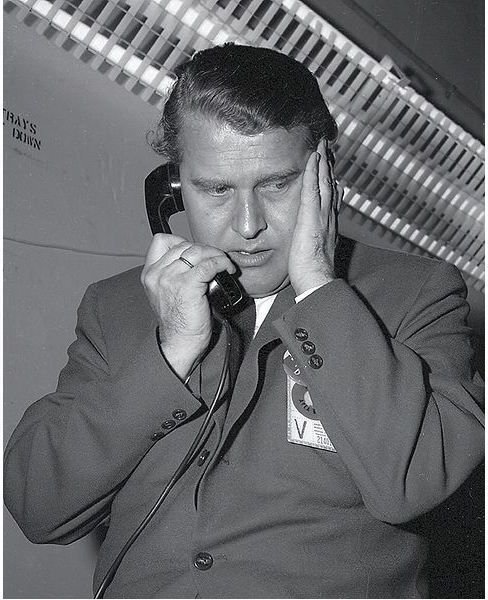Telephone Job Interviews: 3 Ways To Ace Them
What’s a Phone Interview All About?
Learning that you have a job interview by phone is exciting news; it means you have set yourself apart from the majority of applicants who applied for the position. If you play your cards right during this phone call, you can move on to the next stage of the recruitment process or even land a job offer. This kind of job interview requires some unique preparation and planning. By preparing, selecting the right location and understanding the dynamics of the phone conversation, you will be handle yourself well in the interview. Most people also find that preparing throughly for an interview reduces anxiety and stress.
Preparation Is The Key
Preparing for a job interview interview requires planning and research. If possible, schedule your phone interview (or virtual interview), so that you will have a day or two to prepare properly. While preparation is important, don’t delay the interview too long or the company may get the impression that you are no longer interested in the position.
-
Print the Job Posting / Description: Print a copy of the job posting and highlight the sections of the posting that are your strengths. For example, if you are asked about your greatest strengths and the job requires you to manage budgets, you can prepare by discussing a situation where you successfully managed a budget.
-
Research the organization: There are several ways to research the company or organization depending on your position. If you are applying to a government department, you can research the relevant laws or regulations that the department is mandated to enforce. In the case of public companies, read the company’s last annual report. This report will tell you the company’s revenues, challenges, number of employees and other important information. Where possible, focus your research on the part of the company that you will be focused on. For example, if you are being considered for a marketing position, find a few examples of the company’s advertising and write up some notes on your ideas.
-
Print the cover letter and/or resume you used when you applied for the position: In most cases, the interviewer will ask you questions about your experience, education and skills based on your resume. It is helpful to be able to refer to the exact wording and terms you used on your resume during the call, rather than trying to answer based on memory alone.
Location, Location, Location
The importance of choosing the right location for this type of interview is easy to overlook. If you choose the wrong location, the conversation will be difficult to hear and distractions are likely to come up. In most cases, the best place to have this type of phone conversation is your home. If you cannot hold your phone call at home, consider booking a meeting room at a library.
-
Cell Phone Issues: Make sure your cell phone is fully charged before your interview. If you know the interview will be long, you may want to consider purchasing a headset since this will free up your hands to take notes.
-
Shared Space Issues: If you take the call from your home, tell the people you live with about the call in advance so that you will not be bothered. This can be especially difficult if you are having the phone call from your current place of employment. Job hunting on company time is usually not a good idea.
-
Business Setting: The ideal location for a phone interview will have a comfortable chair and desk or table. You should have your resume, cover letter, and your research spread out in front of you for ease of reference. Avoid using your bedroom or a living room where other people are likely to enter during your call.
Telephone Interview vs. In Person Interview
The traditional in person job interview is a social situation well understood by most people. It is important to dress well for job interviews and project a professional image. In-person interviews sometimes let you see the company’s office and get to know some of your potential co-workers face to face. In contrast, a phone call offers less opportunity for you to see the company. Despite these disadvantages, keep in mind the following tips to succeed during the call.
-
Business Dress: Dress for the telephone job interview in the same way you would for an in-person interview. It will help you stay focused and get into the professional mindset.
-
Short Answers: Since you cannot sense the reaction of the people on the other end of the call, it is better to provide short answers (e.g. 30 seconds or less) to answers. If the interviewer wants you to share more detail, they will ask.
-
Take Note Of Your Interviewers: For some positions, you will be fielding questions from a group of people. In other cases, you will be working with a third party recruiting company. You may also be speaking directly to the hiring manager. Ideally, you should ask for the names and roles of the people you will be speaking with in advance of the call. The better you understand your audience, the better you can give answers. For example, if you are interviewing for a technology job but there are two non-technologists on the call, you will need to keep your technical answers understandable to everyone.
-
Next Steps: At the conclusion of the interview, always ask when you can expect to hear about the next stage of the process and who you should follow up with after the interview. If possible, you should also follow up with a brief thank you note or email to your interviewers, thanking them for their time and consideration.
Resources
Phone Interviews, https://classes.lt.unt.edu/Spring_2011/CECS_5420_020/mah0434/assign5/phone_interview.html
Preparing for a Telephone Interview, https://www.career.fsu.edu/employment/telephone-interview-guide.html
Image Credit: Wikimedia Commons, Dr. Von Braun on the Telephone, NASA, Public Domain
